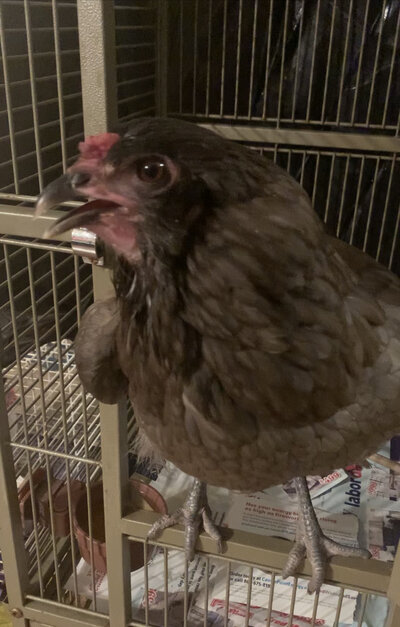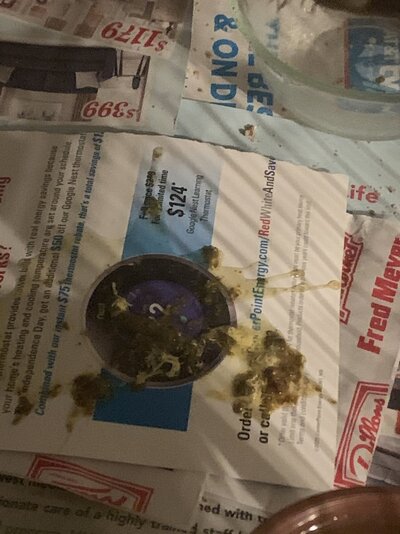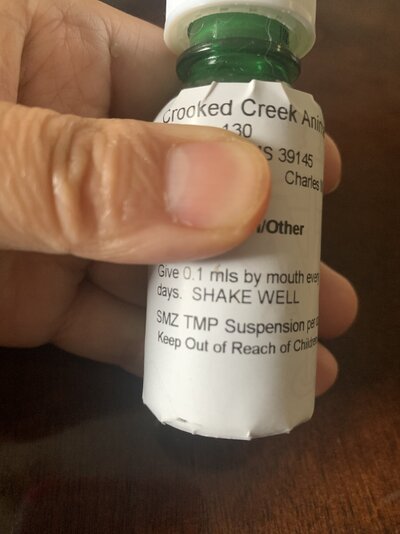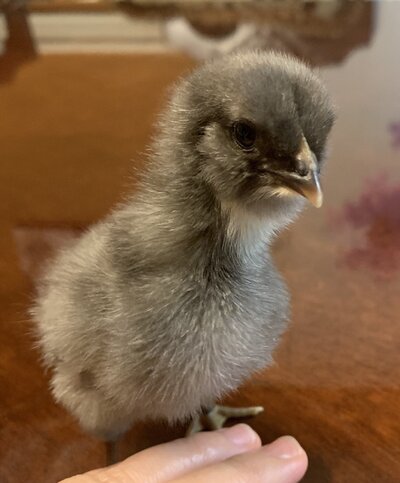Petitebird
Songster
- Dec 24, 2020
- 85
- 68
- 118
This hen loves to eat, but she got squish crop and acted sluggish five days ago.
I treated her crop for one day, and she went back to normal for one day. The. She was sick again, breathing with her mouth open and wings spreading out. She was still eating.
so I thought she might have some kind of respiratory disease. So, I went to tractor supply and bought Vetrx and put drops of solution over her before I went to bed.
The next morning, she was completely unresponsive to food, and seemed to have some kind of nerve issue. I gave her some vitamin and she started to eat. But she would aim at wrong place when she ate. I had to put the food right before her face for her to eat. Still she would miss some.
She was breathing with her mouth open like in the picture for the whole evening last night. And this morning, she refused to eat again, just sitting there with her mouth open. She did drink some water ( I put electrolytes and probiotics in the water). She managed to eat some wet feed which was mixed with popa poultry complete.
At this point, I don’t know what to do because it seems Vetrx did not work for her, instead, it messed with her nerve system.
I have always been giving my chickens RopaPoultry, so I doubt that she has parasites. But, what can be the cause of her greenish watery poop?
I have Corid, Vetrx and antibiotics that vet prescribed. Should I try Vetrx again? Or should I just give her the antibiotics (SMZ TMP)? Or should I give her a couple of drops of concentrated RopaPoultry to work as antibiotics? I am afraid that SMZ TMP will mess up her crop if her crop is still not well.
I treated her crop for one day, and she went back to normal for one day. The. She was sick again, breathing with her mouth open and wings spreading out. She was still eating.
so I thought she might have some kind of respiratory disease. So, I went to tractor supply and bought Vetrx and put drops of solution over her before I went to bed.
The next morning, she was completely unresponsive to food, and seemed to have some kind of nerve issue. I gave her some vitamin and she started to eat. But she would aim at wrong place when she ate. I had to put the food right before her face for her to eat. Still she would miss some.
She was breathing with her mouth open like in the picture for the whole evening last night. And this morning, she refused to eat again, just sitting there with her mouth open. She did drink some water ( I put electrolytes and probiotics in the water). She managed to eat some wet feed which was mixed with popa poultry complete.
At this point, I don’t know what to do because it seems Vetrx did not work for her, instead, it messed with her nerve system.
I have always been giving my chickens RopaPoultry, so I doubt that she has parasites. But, what can be the cause of her greenish watery poop?
I have Corid, Vetrx and antibiotics that vet prescribed. Should I try Vetrx again? Or should I just give her the antibiotics (SMZ TMP)? Or should I give her a couple of drops of concentrated RopaPoultry to work as antibiotics? I am afraid that SMZ TMP will mess up her crop if her crop is still not well.




 I have two other hens left that eat very little and not produce many eggs.
I have two other hens left that eat very little and not produce many eggs.
